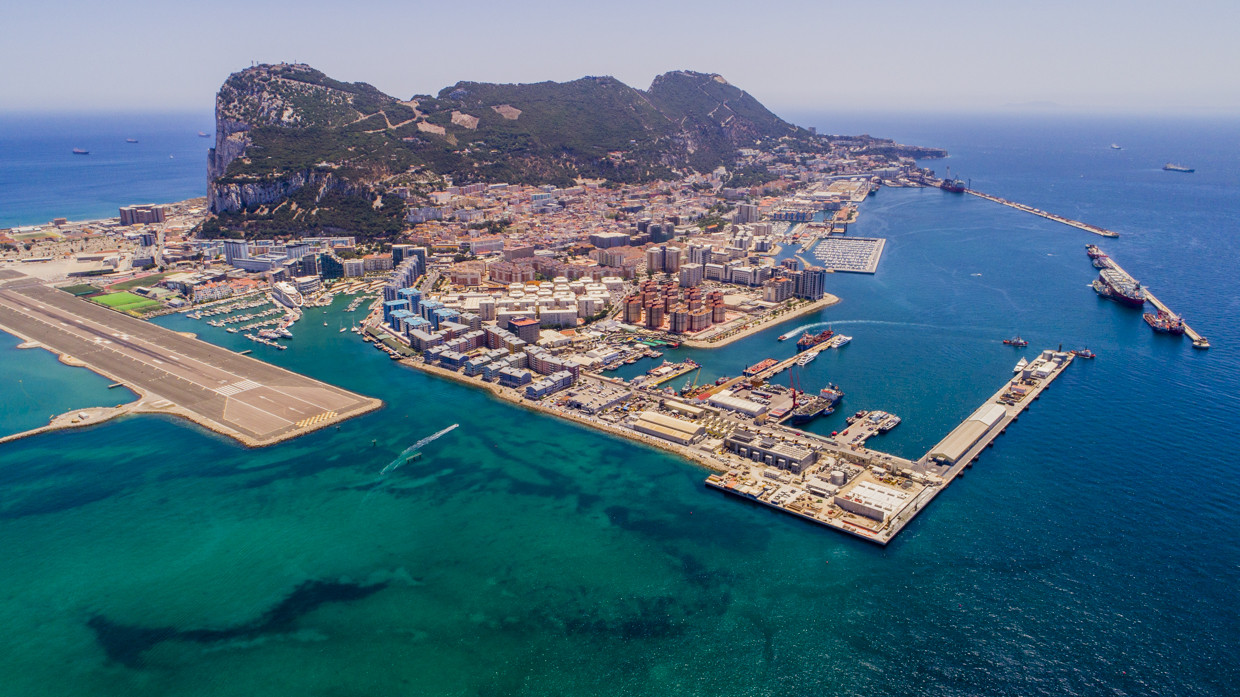Gibraltar, a British Overseas Territory on the southern tip of the Iberian Peninsula, has long attracted international attention, not only for its strategic location and unique cultural blend but also as a thriving financial center. Due to its favorable tax regime, Mediterranean climate, and political stability, Gibraltar has become an appealing destination for property investors and expats alike. However, non-residents looking to buy property in Gibraltar need to be aware of certain restrictions and conditions that apply, as Gibraltar has distinct laws and regulations governing property purchases by foreigners.
1. Can Non-Residents Buy Property in Gibraltar?
The short answer is yes, non-residents can buy property in Gibraltar. The local government allows foreign individuals and companies to own property, with a few stipulations depending on the type of property and its location within Gibraltar. This openness to foreign investment has attracted numerous international buyers, from individual investors looking for a vacation home to businesses seeking commercial space. While Gibraltar’s property market is smaller than those of larger cities, it offers various residential and commercial options, ranging from modern apartments to luxury villas.
2. Types of Properties Available to Non-Residents
Non-residents in Gibraltar can purchase two main types of properties: private properties and “high-value” properties. However, restrictions generally apply to government-controlled and affordable housing properties.
Private Properties: Non-residents can buy almost any private property, which includes most apartments, townhouses, and villas available on the open market. These are typically found in neighborhoods such as Ocean Village, Marina Bay, or Queensway Quay Marina, where there is a mix of luxurious waterfront properties, high-rise apartments, and modern housing complexes.
High-Value Properties: Gibraltar also has a specific category of high-end properties, often referred to as “Category 2” properties, that cater specifically to high-net-worth individuals. Non-residents can purchase these luxury properties without restriction, and the added benefit of purchasing a Category 2 property is that buyers may be eligible for certain tax advantages under Gibraltar’s Category 2 residency status (more on this later). High-value properties are found in prime areas such as The Sanctuary, Buena Vista Park Villas, and the newer Mid Harbour developments.
Government-Controlled and Affordable Housing: Gibraltar’s government offers affordable housing schemes and government-owned properties for local residents, specifically to address housing needs within the Gibraltarian community. Non-residents and non-locals are typically prohibited from purchasing government-controlled properties. This restriction ensures that affordable housing options remain accessible to Gibraltarians and prevents these properties from becoming speculative investments. However, these limitations do not affect the purchase of private and high-value properties by non-residents.
3. Tax Implications and Residency Benefits
One of Gibraltar’s significant attractions is its low-tax environment. Gibraltar has no capital gains tax, inheritance tax, wealth tax, or VAT, making it highly appealing to investors. However, property buyers should consider other tax implications related to property ownership and rental income.
Stamp Duty: When buying property in Gibraltar, stamp duty is payable by the buyer. The amount of stamp duty varies based on the value of the property, but generally, properties valued under £200,000 are exempt from stamp duty. For properties above this threshold, rates can range from 2% to 3.5%, depending on the price.
Income Tax on Rental Income: If a non-resident decides to rent out the property, they will be liable for income tax on rental income generated in Gibraltar. However, Gibraltar’s income tax rates are relatively low compared to other jurisdictions.
Category 2 Residency Status: A major advantage for non-residents purchasing high-value properties is the opportunity to apply for Category 2 residency status. This special residency status is designed for high-net-worth individuals and caps their income tax liability at a relatively low level (as of the last update, a maximum of around £37,000 per annum). To qualify, applicants must prove they have a minimum net worth of £2 million and own or rent approved Category 2 property in Gibraltar. This status allows wealthy individuals to reside in Gibraltar, providing them access to its low-tax regime without being taxed on their worldwide income, only on Gibraltar-sourced income.
4. Financing and Legal Aspects
Non-residents looking to purchase property in Gibraltar may face different financing options compared to locals. While Gibraltar has a few local banks that offer mortgage products, non-residents often face more stringent requirements, such as higher down payments or limited borrowing amounts. Some non-residents opt for financing through banks in their home country, though this can complicate the purchasing process.
Purchasing property in Gibraltar generally requires engaging a local lawyer to handle the legal aspects of the transaction. Property contracts must be processed in compliance with Gibraltar’s legal requirements, and the transaction is usually subject to due diligence checks, such as verifying the property title and confirming there are no existing charges or liens on the property. The buyer's solicitor also manages the stamp duty payment, ensuring all financial and legal obligations are met.
5. Market Considerations for Non-Residents
Although Gibraltar’s property market is open to non-residents, it is a relatively small market with high demand. This demand, combined with limited space for new developments, has led to rising property prices over the years, especially for prime and waterfront properties. Non-residents should consider several factors before investing in Gibraltar’s real estate market:
Price Trends: The limited supply and consistent demand for property have contributed to steady price increases in the past decade. Waterfront areas and luxury developments are particularly popular among international buyers, which has driven up prices in these areas.
Rental Yield: For non-residents looking to buy property as an investment, Gibraltar’s strong rental market offers attractive yields, particularly for short-term rentals. Due to the territory’s thriving finance and gaming industries, there is a continuous demand for rental properties among professionals and expatriates. However, owners should also comply with any applicable rental regulations and tax obligations.
Political Stability and Regulations: Gibraltar’s stable government and economy, along with its clear and investor-friendly property laws, make it an appealing place for foreign buyers. Unlike many other territories, Gibraltar provides security for property owners through well-defined property rights. Non-residents can rest assured that they will not face arbitrary restrictions on their ownership rights or unexpected regulatory changes.
6. Advantages and Challenges of Buying Property in Gibraltar as a Non-Resident
Advantages:
1. Favorable Tax Environment: Gibraltar’s tax-friendly policies, including no capital gains or inheritance taxes, are highly advantageous.
2. Strategic Location: Located at the gateway between Europe and Africa, Gibraltar offers easy access to major European cities, with a unique blend of British and Mediterranean cultures.
3. High Demand and Investment Potential: The limited land supply creates a high-demand environment that can result in long-term property appreciation.
Challenges:
1. Limited Financing Options: Non-residents may find it challenging to secure local financing, particularly at favorable rates.
2. Higher Purchase Prices: Due to limited land and high demand, properties in Gibraltar are generally expensive, especially in popular areas.
3. Legal and Regulatory Requirements: Purchasing property as a non-resident requires compliance with Gibraltar’s legal procedures, which might require additional expenses for legal and due diligence services.
Conclusion
Non-residents can indeed buy property in Gibraltar, making it an attractive destination for international investors and expatriates seeking property in a stable, low-tax jurisdiction. Although there are restrictions on government-controlled housing, private properties and high-value properties are available, with significant tax benefits for high-net-worth buyers. However, prospective buyers should consider the higher prices, financing challenges, and legal requirements involved. With careful planning and professional advice, non-residents can successfully navigate Gibraltar’s real estate market and take advantage of its unique opportunities.

